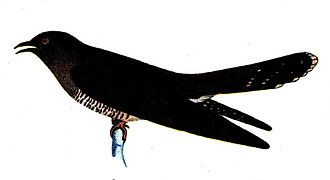
Visiting Hamburg in 1878, Mark Twain heard a cuckoo calling in the woods.
“First cuckoo I ever heard outside of a clock,” he wrote. “Was surprised how closely it imitated the clock — and yet of course it could never have heard a clock.”
He added, “The hatefulest thing in the world is a cuckoo clock.”
(From his Notebook.)

